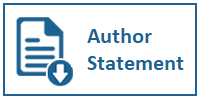UKURAN PERUSAHAAN SEBAGAI VARIABEL MODERASI: DAMPAK PROFITABILITAS DAN PERTUMBUHAN PENJUALAN TERHADAP AGRESIVITAS PAJAK
DOI:
https://doi.org/10.31937/akuntansi.v17i1.4182Abstract
Abstract - This study analyzes the impact of profitability and sales growth on tax aggressiveness, using company size as a moderating variable. The primary issue addressed is the tax aggressiveness practiced by consumer goods companies listed on the Indonesia Stock Exchange (IDX). The drive to maximize profitability in a competitive environment and the perception of high tax rates are the main reasons these companies exploit legal loopholes in complex tax regulations to minimize their tax burden. The study underscores the significant role of firm size, especially for tax authorities assessing aggressive tax strategies. Findings indicate that regulators should closely monitor larger firms, which are more likely to engage in tax avoidance despite strong profitability and sales growth. This quantitative research employs an explanatory method to examine causal relationships between variables. The sample includes consumer goods companies listed on the IDX from 2021 to 2023. Using purposive sampling, 174 data points were collected from 58 companies over three years. Multiple regression analysis was conducted using EViews 12. Results show that profitability and sales growth positively and significantly influence tax aggressiveness. Furthermore, company size enhances the positive effect of both profitability and sales growth on tax aggressiveness. All four research hypotheses are supported, offering insights into tax behavior in Indonesia’s consumer goods sector.
Keywords: Tax Aggressiveness; Sales Growth; Profitability; Company Size; Tax Regulation
Downloads
Downloads
Published
How to Cite
Issue
Section
License
Copyright (c) 2025 Reza Muhammad Rizqi, Arya Zulfikar Akbar, Fahlia Fahlia

This work is licensed under a Creative Commons Attribution-ShareAlike 4.0 International License.
Authors retain copyright and grant the journal right of first publication with the work simultaneously licensed under a Creative Commons Attribution-ShareAlike International License (CC-BY-SA 4.0) that allows others to share the work with an acknowledgement of the work's authorship and initial publication in this journal.
Authors are able to enter into separate, additional contractual arrangements for the non-exclusive distribution of the journal's published version of the work (e.g., post it to an institutional repository or publish it in a book), with an acknowledgement of its initial publication in this journal.
















